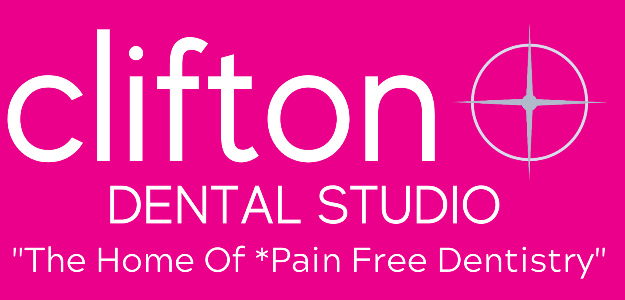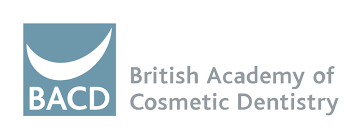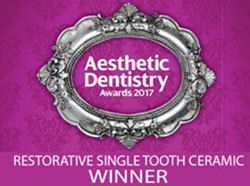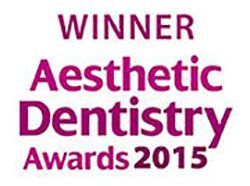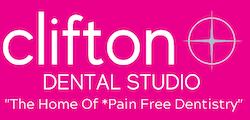Posts Tagged ‘brushing and flossing’
How regular are your dental check ups with Bath dentist?
Dental check ups are one of the most effective ways of keeping your teeth clean and healthy and avoiding unwanted dental complications such as decay and disease. Although the majority of oral hygiene is carried out at home with brushing and flossing it is very important that you give your Bath dentist the opportunity to examine your teeth on a six-monthly basis to check for the telltale signs of dental disease. Brushing and flossing will remove the majority of plaque and bacteria from your teeth and gums if performed correctly but all too often patients miss small spaces between the teeth and around the base near the gums. It is the areas that are hard to reach that your dentist will be able to examine and check for the onset of enamel erosion and tartar. Even the most effective dental hygiene routine can fall foul of decay in the harder to access parts of the mouth. Your dentist will be able to clean these areas and also give advice on how best to look after your teeth in the future. Dental check ups serve a number of other purposes. Oral cancer is on the increase in the UK. This is a very unpleasant disease that can be treated effectively as long as it is caught early. Early treatment of oral cancer will give you a greater than 80 per cent chance of beating the disease, which otherwise could be fatal. Your dentist will check your mouth for the symptoms of oral cancer as part of a routine check up. A dental check up should take little more than half an hour, which every six-months is hardly a lot of time. This half an hour could really make the difference to the health of your teeth and prevent the need for plenty more hours in the treatment chair repairing decayed teeth.Key to oral hygiene explained by Weston-super-Mare dentist
The essence of good oral hygiene is keeping your mouth free from bacteria, plaque and food debris so that it looks and smells as healthy as possible. This can be indicated by teeth that are clean and free from food particles and staining, gums that are pink and do not hurt or bleed when brushed and breath that does not smell. This can be achieved by adopting a fairly simple but quite regimented system of cleaning and regular dental check ups. Teeth cleaning is carried out most effectively in several stages. The first and most important is brushing your teeth twice a day with an appropriate brush and paste. A Weston-super-Mare dentist can recommend the most suitable products for your particular teeth. Brushing should be carried out gently so as not to damage the gums and at a forty-five degree angle to the teeth for the most effective cleaning. Second to brushing in importance is flossing, which dentists recommend should be performed once a day. Flossing is important because it cleans teeth below the gum line and in the difficult inter-dental areas hard to reach with normal brushes. Both brushing and flossing help to prevent the build up of plaque, a substance that releases damaging acids that cause tooth decay if not removed. They also remove food debris that causes over 90 per cent of cases of bad breath. Further cleaning methods that can benefit oral hygiene are using mouthwashes (always ask your dentist before using), inter-dental brushes and tongue cleaners. Effective brushing and flossing should be enough but these other apparatus can also help in some cases. However, effective cleaning is only really beneficial when teamed with regular check ups with your dentist. Even the cleanest mouth can still be susceptible to dental decay, and only a trained dentist can spot the first signs of decay and gum disease. Dentists recommend a check up every six months to help keep your mouth as healthy and clean as possible.The importance of oral hygiene explained by Bath dentist
 We know from archaeological evidence all over the world that we have been trying to look after our teeth for thousands of years. The ancient Egyptians, the first great civilisation, used twigs and leaves to keep teeth clean. Many African tribes to this day still use the ancient practice of chewing leaves with antibacterial properties to keep teeth clean. While the Egyptians may not have understood the exact science behind dental hygiene, they had certainly worked out that keeping teeth clean and healthy helped to prevent painful dental conditions in the future.
We now understand the exact scientific processes that can occur in the mouth to cause dental problems if teeth are not cleaned or cared for properly. Bath dentists recommend that patients brush their teeth twice a day and floss at least once a day. This helps to remove plaque, a filmy substance rich in bacteria that releases acid and erodes the protective tooth enamel. By removing plaque you can prevent enamel erosion that can lead to dental cavities, tooth infection and in severe cases, tooth loss.
It is also vital to keep up six-monthly check-up appointments with a Bath dentist who is highly-trained to spot the first signs of tooth decay or gum disease. Catching these conditions early is critical to effective treatment that can prevent pain and further infection. Dentists can also recommend the most effective methods of cleaning and most suitable products for your individual teeth. This will almost certainly not involve any leaves or twigs but the principles first discovered by the Egyptians remain the same: look after your teeth and they will look after you.
We know from archaeological evidence all over the world that we have been trying to look after our teeth for thousands of years. The ancient Egyptians, the first great civilisation, used twigs and leaves to keep teeth clean. Many African tribes to this day still use the ancient practice of chewing leaves with antibacterial properties to keep teeth clean. While the Egyptians may not have understood the exact science behind dental hygiene, they had certainly worked out that keeping teeth clean and healthy helped to prevent painful dental conditions in the future.
We now understand the exact scientific processes that can occur in the mouth to cause dental problems if teeth are not cleaned or cared for properly. Bath dentists recommend that patients brush their teeth twice a day and floss at least once a day. This helps to remove plaque, a filmy substance rich in bacteria that releases acid and erodes the protective tooth enamel. By removing plaque you can prevent enamel erosion that can lead to dental cavities, tooth infection and in severe cases, tooth loss.
It is also vital to keep up six-monthly check-up appointments with a Bath dentist who is highly-trained to spot the first signs of tooth decay or gum disease. Catching these conditions early is critical to effective treatment that can prevent pain and further infection. Dentists can also recommend the most effective methods of cleaning and most suitable products for your individual teeth. This will almost certainly not involve any leaves or twigs but the principles first discovered by the Egyptians remain the same: look after your teeth and they will look after you.
Dental pain relief from Gloucester dentist
 Dental pain can come in many forms, with the most obvious being toothache, but it can also be caused by gum disease, bite and jaw misalignment and sensitive teeth. The best way to avoid all kinds of dental pain is of course to keep your teeth and gums healthy by brushing and flossing regularly and keeping up six-monthly appointment with your dentist.
Most dental pains are caused by problems arising from poor dental hygiene. Toothache arises because a dental cavity has penetrated to the central chamber of a tooth and become infected. The infection then begins to attack the very sensitive dental nerve causing pain. Infected teeth can also lead to painful tooth abscesses. These abscesses arise when the body tries to fight the infection by bombarding it with white blood cells. Both infected teeth and abscesses are very painful and susceptible to extremes of temperature. They can both be prevented by brushing and flossing because this removes the bacteria rich substance called plaque that causes dental erosion in the first place.
Dental pain associated with bite is usually cause by teeth moving around and leaning within the dental arc. This is often caused by a missing tooth due to decay or dental trauma. Dentists can treat this pain by fitting mouth guards or other appliances to prevent teeth grinding or bite adjustment.
Whatever kind of dental pain you are suffering it can usually be treated with over-the-counter pain relief but it is always necessary to have your teeth examined by a dentist first. Some tooth infections and gum diseases require antibiotics or even surgery. If you are suffering from dental pain, make an appointment to see a Gloucester dentist and have a thorough check up. Dental pain can be treated but it is more effective to prevent the causes of dental pain far in advance.
Dental pain can come in many forms, with the most obvious being toothache, but it can also be caused by gum disease, bite and jaw misalignment and sensitive teeth. The best way to avoid all kinds of dental pain is of course to keep your teeth and gums healthy by brushing and flossing regularly and keeping up six-monthly appointment with your dentist.
Most dental pains are caused by problems arising from poor dental hygiene. Toothache arises because a dental cavity has penetrated to the central chamber of a tooth and become infected. The infection then begins to attack the very sensitive dental nerve causing pain. Infected teeth can also lead to painful tooth abscesses. These abscesses arise when the body tries to fight the infection by bombarding it with white blood cells. Both infected teeth and abscesses are very painful and susceptible to extremes of temperature. They can both be prevented by brushing and flossing because this removes the bacteria rich substance called plaque that causes dental erosion in the first place.
Dental pain associated with bite is usually cause by teeth moving around and leaning within the dental arc. This is often caused by a missing tooth due to decay or dental trauma. Dentists can treat this pain by fitting mouth guards or other appliances to prevent teeth grinding or bite adjustment.
Whatever kind of dental pain you are suffering it can usually be treated with over-the-counter pain relief but it is always necessary to have your teeth examined by a dentist first. Some tooth infections and gum diseases require antibiotics or even surgery. If you are suffering from dental pain, make an appointment to see a Gloucester dentist and have a thorough check up. Dental pain can be treated but it is more effective to prevent the causes of dental pain far in advance.
Bristol dentist recommends six-monthly dental check ups
 In the war against dental decay, after effective brushing and flossing, the most important weapon is a regular dental check up every six months with a dentist. Brushing and flossing are crucial for maintaining a high standard of oral hygiene. They help to control plaque, a bacteria rich substance that is responsible for enamel erosion and tooth decay. But even the most dedicated teeth cleaner can still suffer from dental conditions they will not be able to spot.
For example, even effective brushing and flossing may not be enough to prevent gum disease or tooth decay. Some people are more susceptible to these conditions than others and tooth decay especially develops in areas that are hard to clean and therefore impossible to see. Areas in between teeth and below the gum line can be very difficult to clean and so dental decay can occur without the patient knowing. A dentist will examine all the hard to reach places as part of a thorough check up.
Dentists recommend that you make an appointment every six months. Not only will they be able to carry out a thorough check for the signs of tooth decay and gum disease but they can also examine your diet and cleaning regimes and give you advice on more effective dental care. They will also be able to give your teeth a thorough clean or refer you to a dental hygienist. Dentists can also give advice about the natural discolouration of teeth that occurs with age and the most effective ways to control it.
For patients with certain conditions it may be necessary to visit a dentist on a more regular basis. Smokers and pregnant women are particularly at risk and need to make more regular appointments. A Bristol dentist will be able to further advise you on the need for regular check ups and can carry out a thorough check up for any dental problems.
In the war against dental decay, after effective brushing and flossing, the most important weapon is a regular dental check up every six months with a dentist. Brushing and flossing are crucial for maintaining a high standard of oral hygiene. They help to control plaque, a bacteria rich substance that is responsible for enamel erosion and tooth decay. But even the most dedicated teeth cleaner can still suffer from dental conditions they will not be able to spot.
For example, even effective brushing and flossing may not be enough to prevent gum disease or tooth decay. Some people are more susceptible to these conditions than others and tooth decay especially develops in areas that are hard to clean and therefore impossible to see. Areas in between teeth and below the gum line can be very difficult to clean and so dental decay can occur without the patient knowing. A dentist will examine all the hard to reach places as part of a thorough check up.
Dentists recommend that you make an appointment every six months. Not only will they be able to carry out a thorough check for the signs of tooth decay and gum disease but they can also examine your diet and cleaning regimes and give you advice on more effective dental care. They will also be able to give your teeth a thorough clean or refer you to a dental hygienist. Dentists can also give advice about the natural discolouration of teeth that occurs with age and the most effective ways to control it.
For patients with certain conditions it may be necessary to visit a dentist on a more regular basis. Smokers and pregnant women are particularly at risk and need to make more regular appointments. A Bristol dentist will be able to further advise you on the need for regular check ups and can carry out a thorough check up for any dental problems.
Swindon dentist combines brushing and flossing advice with check up
 The preventative measures of brushing and flossing, if performed correctly and diligently everyday, can help to prevent nearly all forms of dental problems. Dentists recommend that patients brush for at least three minutes everyday and floss once a day. It is also recommended to use an appropriate toothbrush and toothpaste for your gums and teeth.
The preventative measures of brushing and flossing, if performed correctly and diligently everyday, can help to prevent nearly all forms of dental problems. Dentists recommend that patients brush for at least three minutes everyday and floss once a day. It is also recommended to use an appropriate toothbrush and toothpaste for your gums and teeth.
Brushing and flossing help to prevent the build up of plaque on the teeth and gums. Plaque is a filmy bacteria rich substance that coats the tooth enamel. The acid released from decaying bacteria erodes tooth enamel causing dental cavities which leads ultimately to tooth loss and gum disease. Brushing removes the majority of plaque and flossing gets to the harder to reach areas between the teeth and under the gum line.
As well as keeping teeth free from plaque, brushing and flossing also removes trapped food debris from between the teeth which is the cause of over 90 per cent of cases of bad breath. It is also advised by dentists that patients brush the surface of their tongue with a specially designed tongue brush.
By keeping a high standard of oral hygiene, mainly by correct brushing and flossing, you can help to have healthy teeth and gums for the rest of your life. However, it is also important that you maintain regular visits to the dentist for check ups. Even brushing and flossing cannot prevent all types of dental disease. Make an appointment with a Swindon dentist for a check up and for more information about correct brushing and flossing tips.
